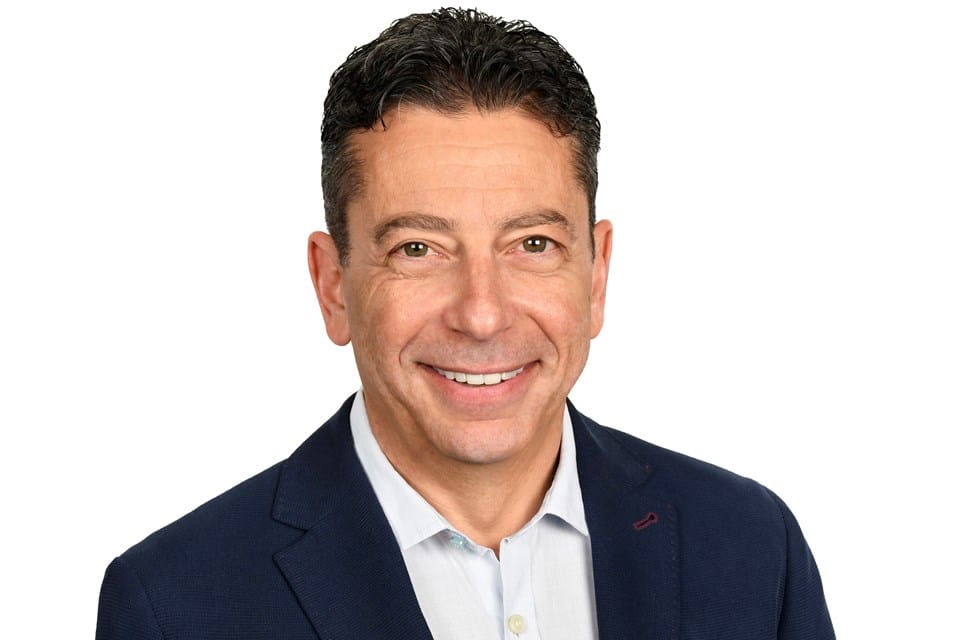“We don’t look at India as a far away country. For us, this is part of what we are.” – Meet Trinity College London’s new CEO

Earlier this year, Trinity College London announced global education leader, Erez Tocker, as its new Chief Executive after Sarah Kemp stepped down from the role following 13 years at the helm. Erez Tocker, an international leader in education and digital transformation, was previously Managing Director, International at world-leading assessment, teaching and learning provider Renaissance Learning. He brings to Trinity a wealth of experience, including his founding and leadership of the technology start-up Oxford English China and a decade of driving growth at Kaplan International.

Nikhil Sardana: Trinity College London’s former CEO, Sarah Kemp, was responsible for leading a significant growth internationally. What might be your aspirations from the organisation going forward?
Erez Tocker: Sarah Kemp has done fantastically well here by expanding globally and building new types of assessments. There’s always an element of sadness when a good leader leaves an organisation. For me, it is more about building on the foundations that she laid together with members of the team. There’s a continuity and we have a sense of what we are going to build forward.
Moving ahead, we will be looking at protecting the core organisation which consists of supporting learners and educators. We will follow this up with product innovation as we migrate into the digital world. And lastly, we will be looking at our geographical footprint and potential expansion plans to see what else we can do in the world.
NS: You are passionate about transforming lives through education and are a firm believer in applying technology in this field for stronger growth. How are you planning on using technology at Trinity College London?
ET: There is a lot of confusion around technology and education. It drives some of the fears and what caused a relatively slower adoption in our sector has now been accelerated due to Covid. Before the pandemic, we have been migrating slowly to use technology. My philosophy is that technology is supporting the educators and the learners. It is not replacing anyone. Technology can be used to help the teacher focus on educating rather than administering or passing on data. The digital assessments are not replacing the teacher. Instead they are providing information and tools to the educator to be able to take better decisions. If technology is an enabler of the education process, then it is supporting the learning process.
There’s an opportunity to use technology here at Trinity College to enhance the work that is already being carried out. During Covid we had to launch the DGD’s (Digital Graded Diplomas) because otherwise nobody could actually take music assessments. We had to quickly come up with a solution. This was a great adoption and is likely to run forward. We will also be looking at solutions that serve everybody. It is expensive to have a face to face exam particularly when the examiner is travelling. Through technology we have the opportunity to expand and support learners.
NS: What has the response been from your digital exams?
ET: The digital exams were launched during Covid. It is a great example of working in an ecosystem. Everybody needed to move fast and get it right. A digital solution was something that didn’t exist. A lot of this is due to the extraordinary work the teachers have done.
The digital assessments have picked up significantly. For a period of time we were only delivering this new type of assessment that didn’t exist a month before of that. We had some operations where the face-to-face interactions continued for our English Language assessments. We continued these operations making sure that it was safe for candidates and our team so that we don’t disrupt the flow of life and aspirations of people that recently migrated the UK and needed to have that certificate.
NS: What are your future plans for India?
ET: We have a good team in India. We see ourselves as part of the fabric of the education sector. During the pandemic, we were very much reliant on making sure that the teachers were picking things up. We delivered free training to teachers during the pandemic so that they can easily switch to digital solutions. We don’t look at India as a far away country. For us, this is part of what we are. That won’t change. The question for us is what else can we do, where can we improve and how can we help. It is a dialogue that we must have and continue to highlight in the education sector. We are a charity so we have this ethos to do good in the world. We want to continue to promote Music.
NS: How is Artificial Intelligence making an impact on music education?
ET: AI in education has just started to accelerate exponentially. Data is what feeds AI. Machine learning needs the statistical tools that can be derived from good and accurate data sets. AI can be incredibly helpful if used the right way. It can provide us the gaps of the learner. It can help us to also see into the future by developing predictive tools to get an idea where the student is, where the student is going and how we can provide the support. That data is supporting the teacher. Everybody learns in a slightly different way and you need the educator to be there to interpret the data and apply it for an individual. In Music, AI is not being used widely just yet. It is difficult to be deployed in the field of Music and Drama, though I am seeing some potential for change here.






